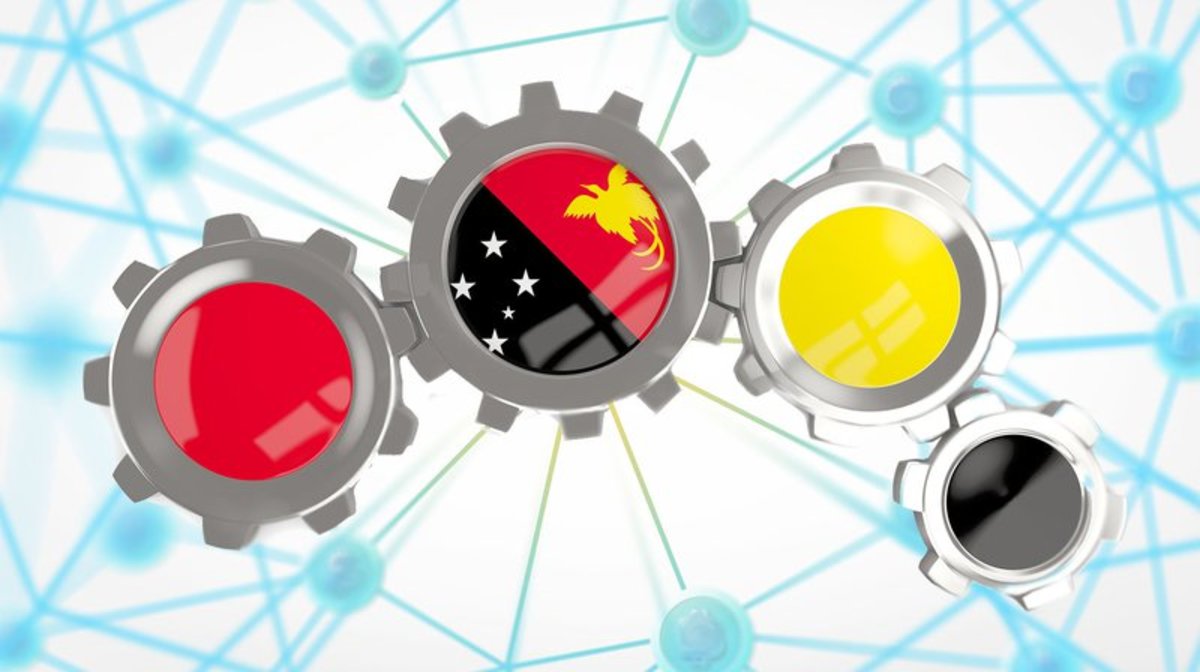
The number of countries with banks experimenting with blockchain technology is growing rapidly. The Pacific island nation of Papua New Guinea (PNG), north of Australia, has joined the movement with its own central Bank of Papua New Guinea running blockchain trials.
Central Bank Governor Loi Bakani, known as a champion of new technologies as a way to enable financial inclusion, recently hosted a conference to showcase his country’s commitment to blockchain technology, with participants from at home and around the world, including Abt Associates, Paycase, Othera, IDbox, Pacific Markets, UCash, Seso and ADCCA.
At the conference, Bakani described the blockchain trials underway at the Bank of PNG and introduced the PNG Digital Commerce and Cryptocurrency Association for the growing number of Papua New Guinea tech entrepreneurs and businesses interested in blockchain technology.
Bakani said, “This will allow PNG to join the Global Blockchain Forum, which gets PNG a cutting edge in discussions about Blockchain at a global level, along with Australia, Canada, U.S.A., Dubai, UK and Japan. There is no reason why PNG can’t be a leader for emerging markets.”
There are already central banks experimenting with blockchain technology around the world, including Bank of America, HSBC, Credit Suisse, Deutsche Bank, Bank of England, People's Bank of China, Bank of Canada, the National Bank of Cambodia, and the Central Bank of India.
Elizabeth Genia, Assistant Governor of the central Bank of PNG said, “It is the new innovations that can change people’s lives — almost 85 percent of our people live outside the banking system.”
According to Abt Associates’ Jane Thomason, who helped manage the conference, 85 percent of PNG has little or no access to banking services and accounts, and the island is among the most expensive remittance corridors in the world, with nearly 10 percent of all funds transferred going to fees alone.
Thomason told the conference that blockchain-based technologies offer developing nations a way to leapfrog conventional technological advancements, similar to the adoption of cell phones in much of the world.
She noted, “In 30 years working in PNG, I have never had so much optimism that we are working with something that really will change the lives of poor Papua New Guineans.”
PNG’s IT Minister Francis Maneke told the conference, “Papua New Guinea is an ideal proving ground for these applications. In fact, there is a possibility that we will leapfrog many developed nations in our use of this sort of smart technology, giving us a competitive edge as early adopters.”
Conference speaker and Paycase CEO Joseph Weinberg told Bitcoin Magazine that the conference looked at ways that blockchain technology could be used in all sectors of PNG’s economy.
“The conference included the creation of frameworks, roadmaps and deployment strategies. In order to make anything of this magnitude work, you need proper planning between the government, regulators, commercial partners and the Central Bank. Corporations in particular need to be engaged as they will enable much of the infrastructure needed to make it happen. This is where PNG is headed.”
Bakani also expressed the hope that blockchain technologies could be deployed in many sectors of PNG’s economy.
“When looking at large-scale deployments of this magnitude,” said Bakani, “we truly value our international panelists and partners and look forward to further discussions as the Bank establishes the next stages of its blockchain implementation.
“The government, along with the necessary stakeholders here in PNG not only recognize the challenges they face, but now see the clear opportunities that blockchain-based systems can enable for their country and people.”
In closing the conference, Maneke said, “We in the O’Neill government are determined to bridge the digital divide to ensure our people can participate in the global economy, and not be excluded from it.”
Funding for the conference was provided by the Australian Government and was managed by Abt Associates.










